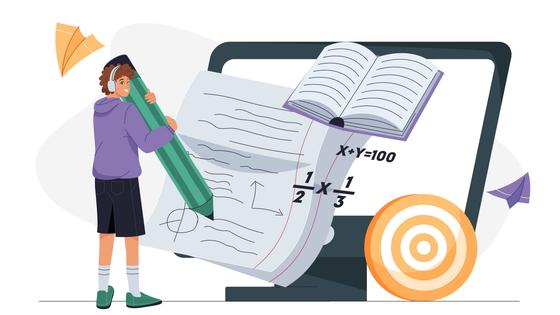Math Teachers Use AI the Least
The EdWeek Research Center conducted a survey of over 400 math teachers in the U.S. The results revealed that about 70% of them have not received training on using AI in their professional work and do not plan to do so in the near future.

Among the reasons math teachers cited for not wanting to learn how to use AI effectively were the relatively low quality of available training courses, as well as more pressing professional priorities and development goals. The survey also found that most teachers do not plan to explore AI applications because they believe AI should not be used in math instruction at all. More than 40% of respondents held this view. Pat Yongpradit, Chief Academic Officer at Code.org and leader of the TechAI initiative, noted that current generative AI models still make numerous errors when solving math problems, which is why teachers distrust neural networks.
"AI takes the thinking away from students and they think it is the answer to everything," wrote a Wisconsin math teacher in one of the survey's open-ended responses. "There should be LESS automation and MORE thinking.." Pat Yongpradit added: "Even when AI does get it right, it often fails to explain the steps it used to get the right answer. This is a double whammy for the effectiveness of using AI in math instruction-math is not just about the right answer, it's also about the process".
Interestingly, this is not the only survey highlighting math teachers' negative attitudes toward the active use of AI in education. Earlier, a RAND Corporation study found that math teachers use AI tools in lessons or for lesson preparation far less frequently than foreign language or science teachers. Nevertheless, educational AI developers are taking such research into account and improving chatbots to enable more meaningful dialogue, better topic explanations, and reasoning. For example, Anthropic has developed a new version of its Claude neural network specifically for education, introducing a Learning Mode feature for deeper engagement with study material.












 9 Career Mistakes Young Professionals Make
9 Career Mistakes Young Professionals Make
 £23 million allocated for the expansion of EdTech Testbed in the UK
£23 million allocated for the expansion of EdTech Testbed in the UK
 Tuskegee University launches Global Campus — a new online platform
Tuskegee University launches Global Campus — a new online platform
 Test: How Psychologically Mature Are You? Check Your Inner Foundation.
Test: How Psychologically Mature Are You? Check Your Inner Foundation.
 Test. Check Your Social Media Dependency Level!
Test. Check Your Social Media Dependency Level!
 Test: What Business is Right For You?
Test: What Business is Right For You?
